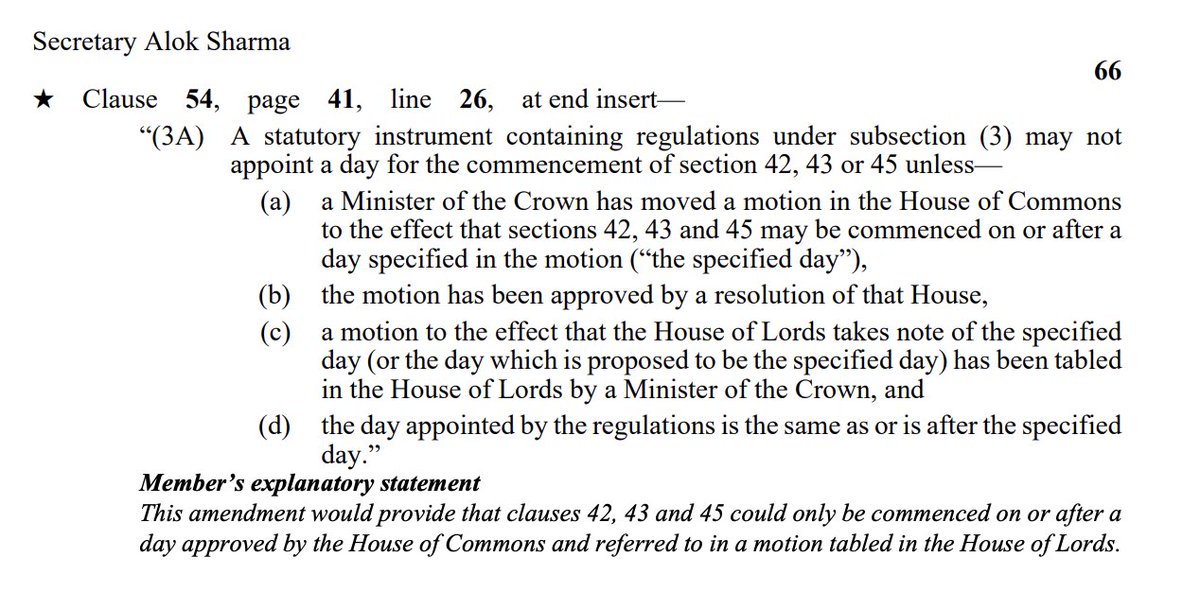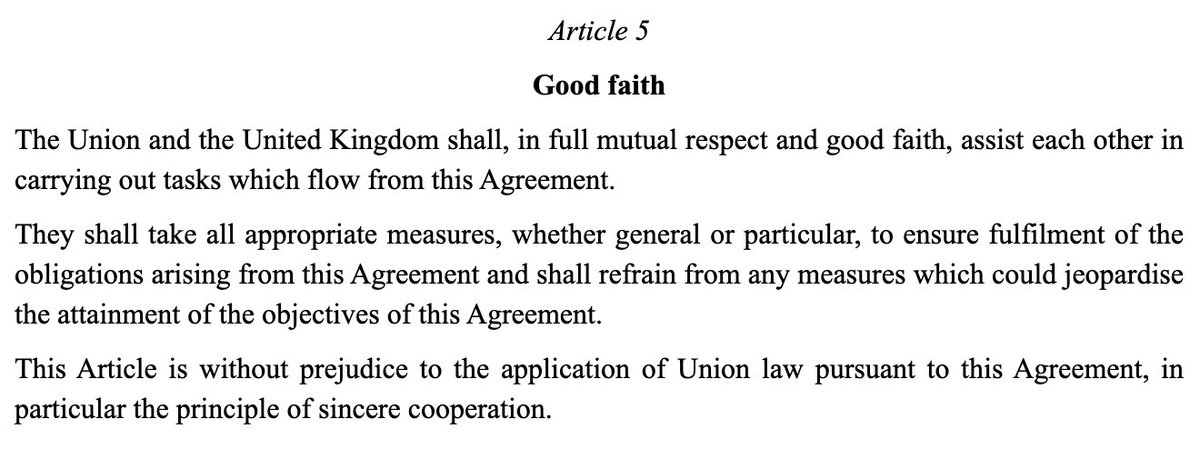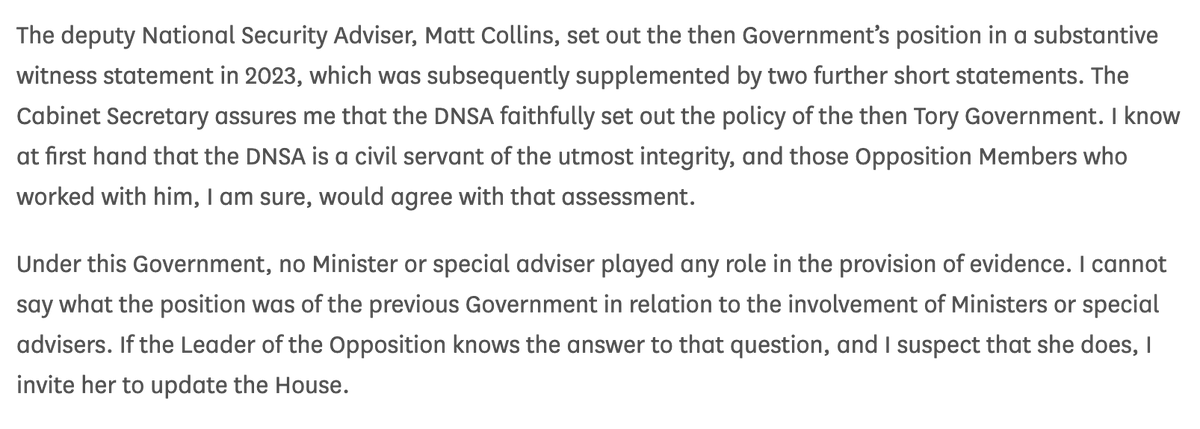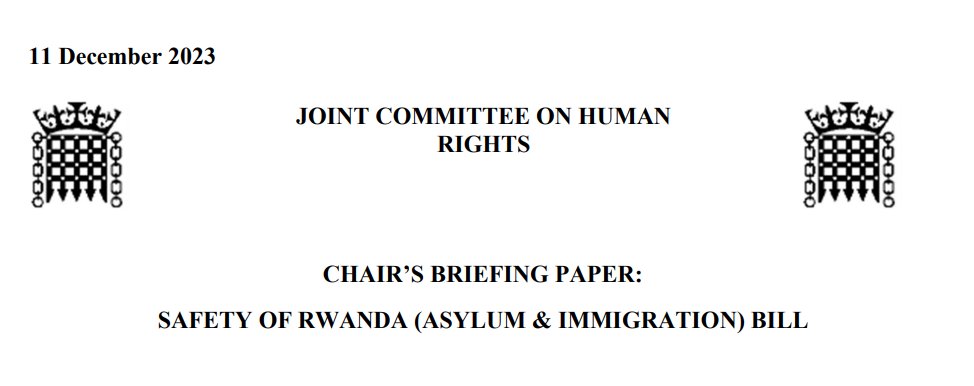The Government has published its proposed amendments to the Internal Market Bill in order to give effect to the so-called climb down that is intended to placate sufficient Conservative MPs.
Here is the first of two short threads on this. /…
Here is the first of two short threads on this. /…
Here’s the amendment that’s intended to provide reassurance to MPs about breaching international law. /… 

The effect of this amendment is very limited. It simply means that the Ministerial powers to breach the Withdrawal Agreement & NI Protocol don’t become legally exercisable until they are triggered by a vote in the House of Commons. /…
Once the Commons gives the green light, the powers become fully exercisable and can be used by Ministers to make regulations in breach of the UK’s international treaty obligations. /…
In effect, then, by enacting the Bill, Parliament would be making all necessary domestic legal preparations for Ministers to be allowed to breach treaty obligations subject only to the need for a further vote in the Commons to trigger those Ministerial powers. /…
This changes nothing, therefore, in international law terms: if these powers are triggered and exercised by Ministers, the UK will breach its obligations under the Withdrawal Agreement/NI Protocol. /…
Moreover, it is strongly arguable that as soon as the Bill is enacted, the UK would breach its treaty obligations (i.e. even before any exercise of the Ministerial powers in clauses 42 & 43). /…
In particular, enacting the Bill would very likely in itself entail a breach of the good faith provision obligation in Article 5 of the Withdrawal Agreement. /… 

The bottom line is that the amendment the Government is proposing to the Bill is political window-dressing — it is not a ‘climb down’ in any meaningful sense. /ends
• • •
Missing some Tweet in this thread? You can try to
force a refresh
















